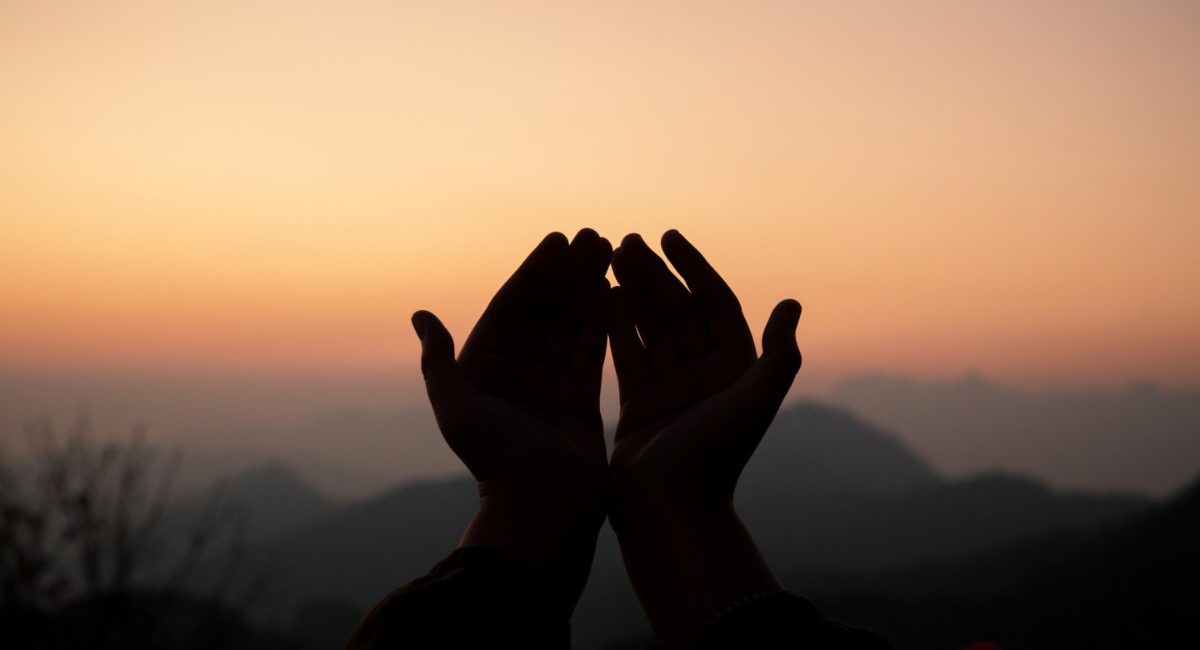The Way of Prophet Muhammad (SAW)
The Prophet (SAW) benefited greatly from his supplications, for Allah (SWT) blessed him in his wealth, his food, and his drink. Allah (SWT) supported him in his wars, granting victory to him and his followers and inflicting his enemies with humiliating defeats. And Allah (SWT) continued to help him and answer his prayers until he departed from this world.
Muhammad: As If You Can See Him by Aid Al Qarni
By The Editor
The perfect way of getting the Master Key is by Making Duaa (supplication) the way our Prophet (SAW) did.
In regard to supplication Allah (SWT) said:
“And your Lord said, “Invoke Me, [believe in My Oneness (Islamic Monotheism)] I will respond to your [invocation]…”
Qur’an 40:60
“And when My slaves ask you [O Muhammad] concerning Me, then [answer them], I am indeed near [to them by My Knowledge]. I respond to the invocations of the supplicant when he calls on Me [without and mediator or intercessor]…”
Qur’an 2:186
The Prophet SAW depended on no one but Allah; and in Allah, he placed his complete trust. Consequently he invoked Allah for help at all times and on all occasions. Anything he wanted, he asked for from Allah. Among other things he asked for Allah’s mercy, forgiveness, and rewards.
Although the Prophet SAW did ask for specific things, his supplications generally consisted of few words that embraced a number of rewards and blessings. For instance, what supplication can be more comprehensive than the following one that the Prophet SAW taught us: “O Allah, give us that which is good in this life and that which is good in the Hereafter, and protect us from the punishment of the Hellfire.” – Related by Bukhari (4522, 6389) and Muslim (2688), on the authority of Anus.
In another supplication the Prophet said, “O Allah, I ask you for pardon and well-being.” – Related by Ahmad (4770), Abu Dawood (5074), Ibn Majah (3871), and al-Hakim (1902), on the authority of Ibn Umar. And al-Hakim ruled that this hadith is authentic.
The Prophet (SAW) would repeat his supplications three times; before supplication, he would praise and extol Allah; while supplicating he would face Qiblah (the direction of the Ka’bah); and at times, he would perform ablution before supplicating. He would teach these and other etiquette of supplications to his followers – for instance, instructing them to ask Allah SWT by His beautiful Names, to be persistent in their supplications, and to thus never despair of having their supplications answered.

Occasions When Duaas Are More Likely To Be Answered
The Prophet (SAW) further instructed his followers to supplicate on specific occasions, occasions on which supplications are more likely to be answered: at the conclusion of Prayer; between the Adhan (the call to Prayer) and the Iqamah (the shorter, final call to the commencement of Prayer); during the last hour of Friday; the Day of Arafah; and while one is fasting, travelling, or performing prostration. The Prophet (SAW) also indicated the special strength and potency of the father’s supplications for his child.
The Prophet SAW invoked Allah on all occasions; but during times of crisis, he increased the intensity of his supplications, repeatedly turning to Allah for help, feeling all the while a sense of fear, humility and love; furthermore, he had good thoughts about Allah and a strong sense of hope that Allah would answer his prayers – as Allah most certainly did on many occasions, such as days of Badr, Khandaq, and Arafah; the day the Prophet SAW stood on pulpit and prayed for rain, immediately after which rain began to fall down in abundance; and the day Allah SWT caused the moon to split into two pieces.
Click here to know about the Master Key.
Subscribe to get recommended powerful Duaas email directly in your inbox.